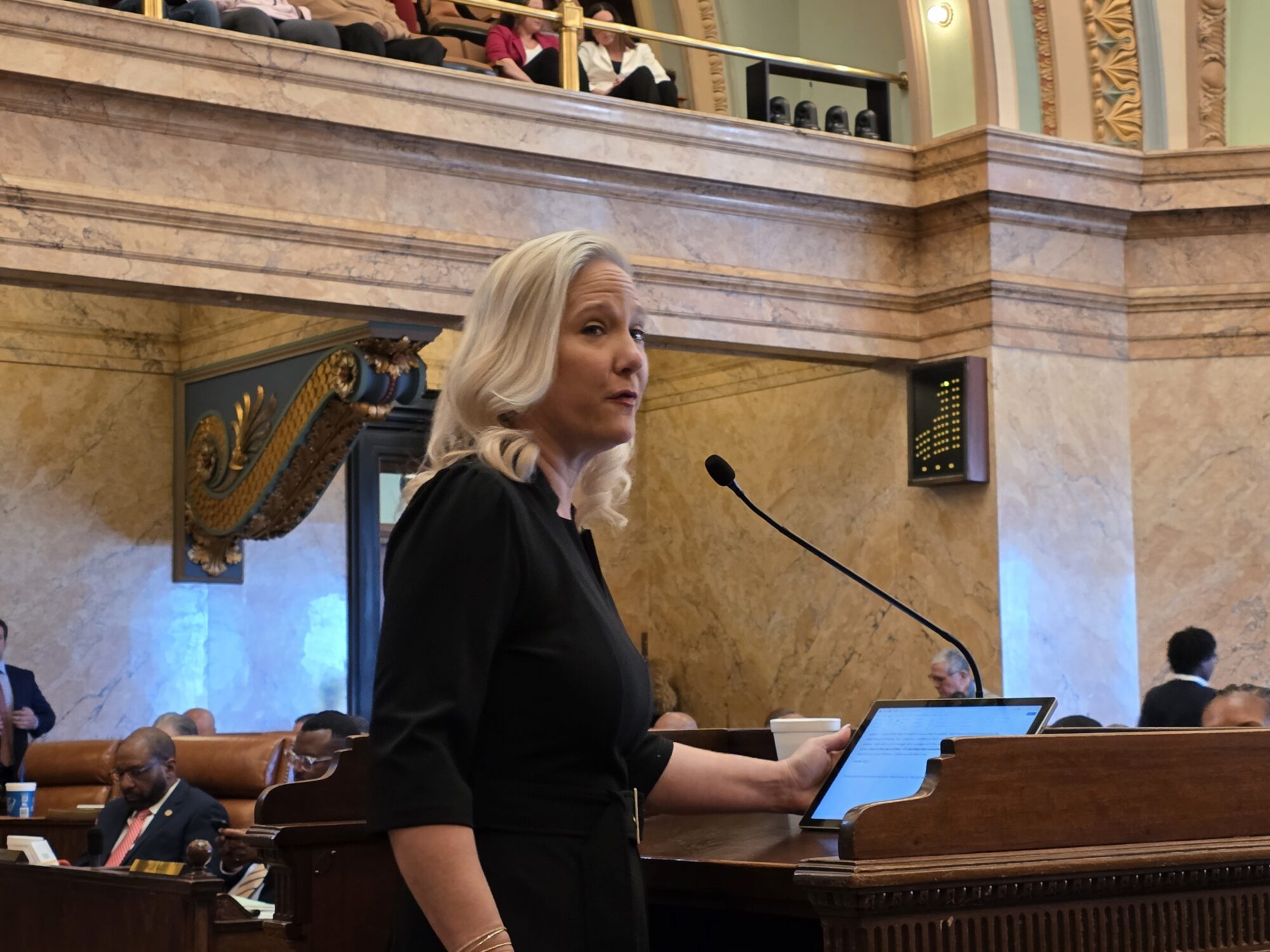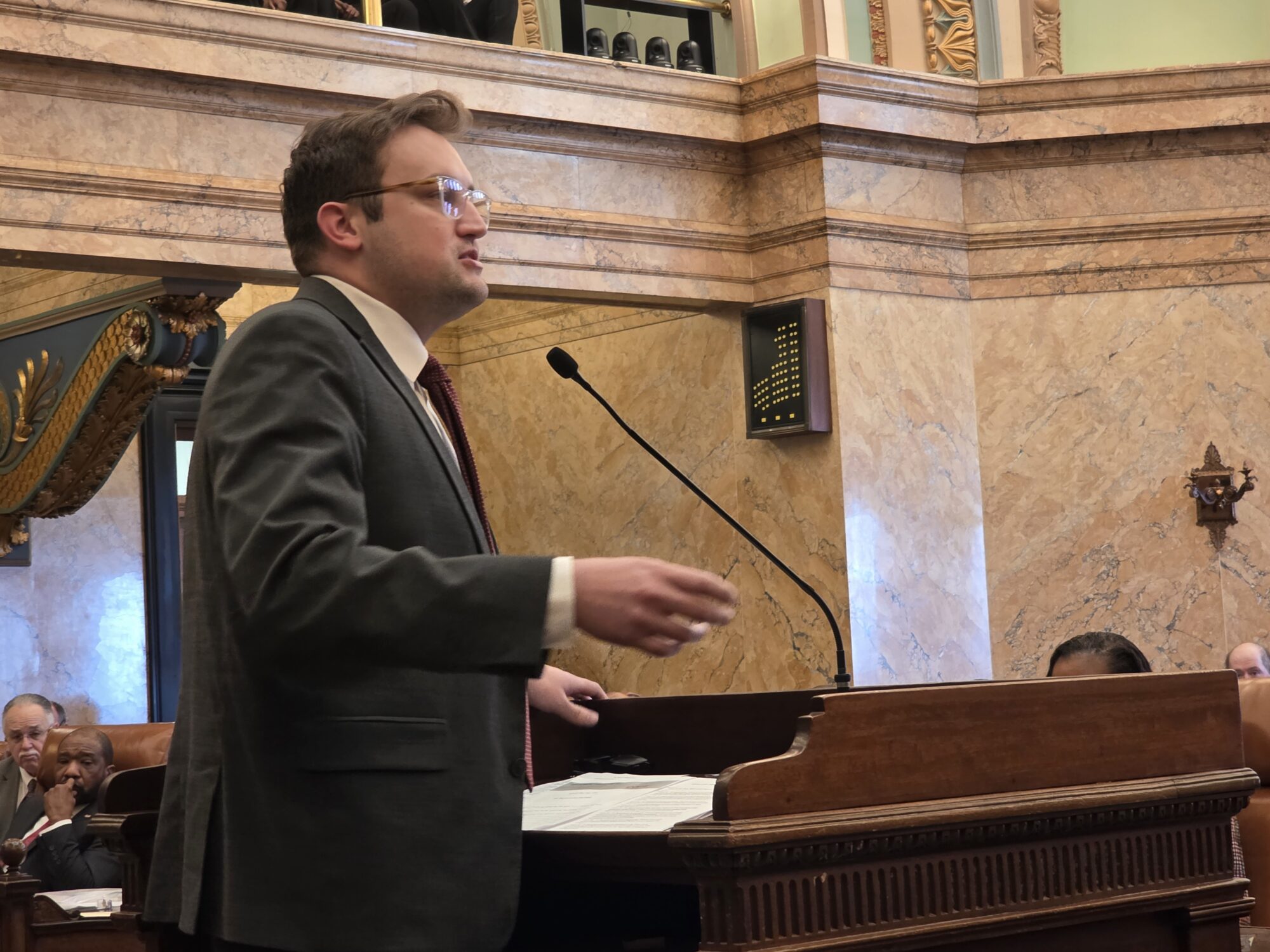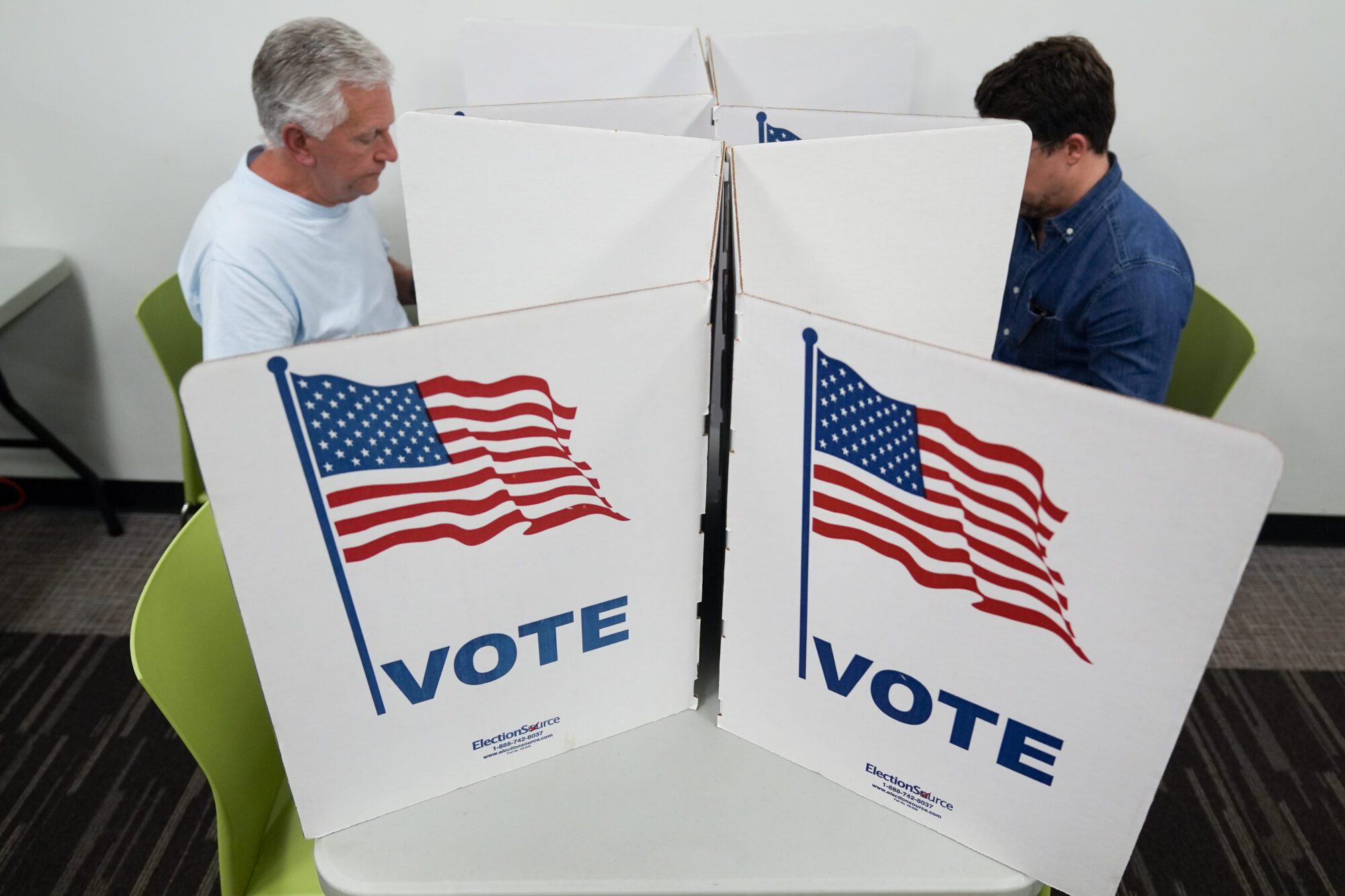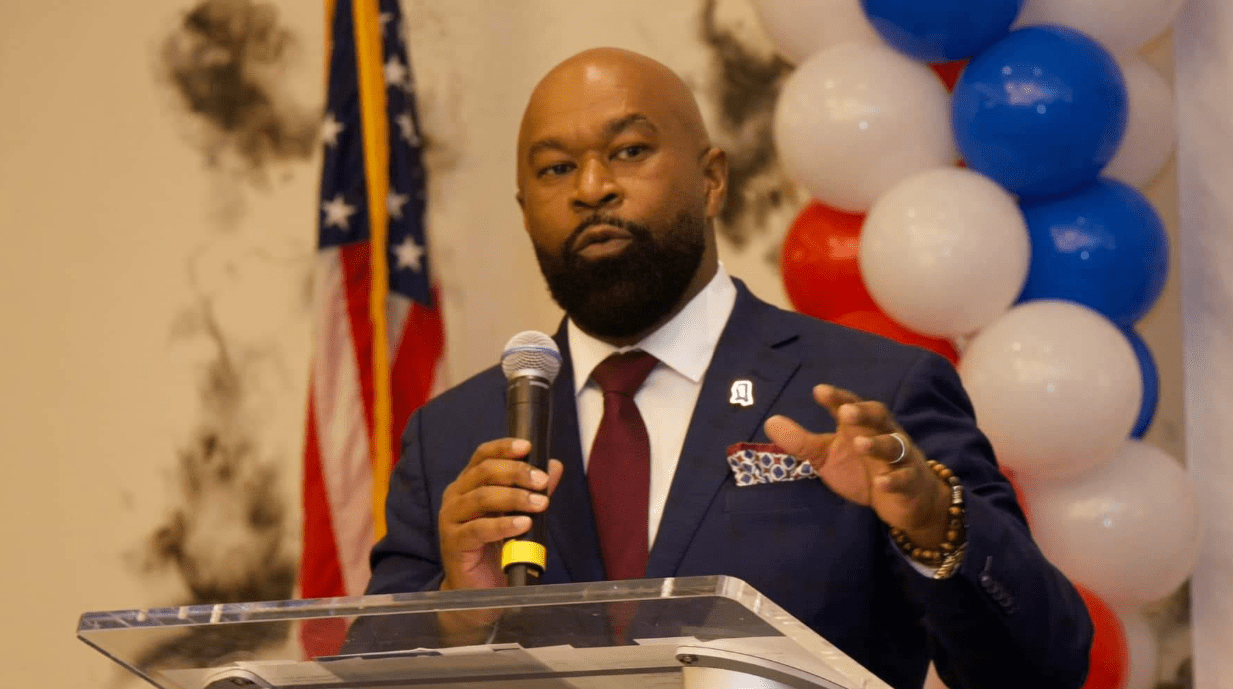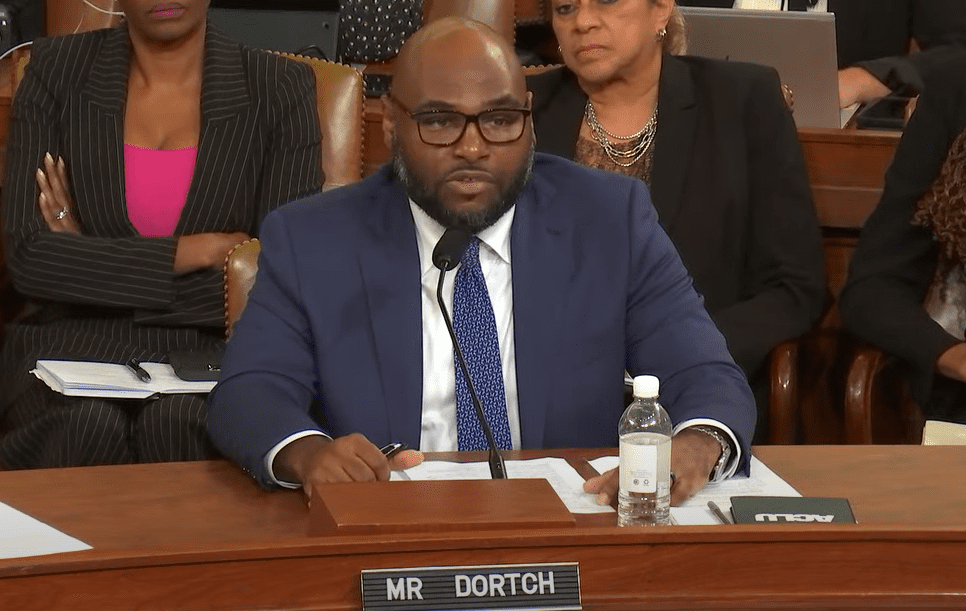
ACLU Mississippi's Jarvis Dortch address the U.S. House Ways and Means Committee, Sept. 24, 2024. (From Livestream)
- The state’s new law prohibits utilizing DEI practices when making decisions concerning school employment, academic opportunities, and student engagement.
A federal lawsuit was filed by the American Civil Liberties Union (ACLU) of Mississippi and the Mississippi Center for Justice on Monday challenging HB 1193, the state’s new law prohibiting diversity, equity, and inclusion (DEI) practices in public K-12 schools as well as in Mississippi’s public colleges and universities.
The bill, which was signed into law by Governor Tate Reeves (R) on April 17, bans public higher education institutions and K-12 schools from utilizing DEI practices when making decisions concerning school employment, academic opportunities, and student engagement. Such decisions are to be based on an individual’s merit and qualifications rather than a person’s race, color, sexual orientation, or gender.
The lawsuit, which challenges the constitutionality of the bill, has been filed against the Mississippi State Institutions of Higher Learning (IHL) Board of Trustees, Mississippi Community College Board, Mississippi State Board of Education, and the state’s Charter School Authorizer Board.
The ACLU contends that the bill prohibits “public colleges, universities and K-12 schools from “engag[ing]” in “any formal or informal education… that focus[es] on increasing awareness or understanding of issues related to race, sex, color, gender identity, sexual orientation or national origin.”
The bill tasks those institutions and the Mississippi Department of Education with creating a reporting process for alleged violations of the law. MDE and IHL both sent proposed policies to the Secretary of State’s office for a 30-day public comment period, which if adopted will set forth standards for reporting and investigations claims of DEI violations. The public comment period started after each entity sent their proposed policy to the Secretary of State’s office last month.
Outgoing IHL Board President Gee Ogletree said during last month’s meeting that IHL drafted the proposed policy to meet the requirements outlined in the new law, which states each affected entity shall provide a method for receiving reports and investigating alleged violations.
Under the law, second and subsequent violations of the DEI bill could result in a loss of state funding until the violation is corrected.
The lawsuit challenging the law “is brought by students, parents, educators, and organizations that collectively represent the interests of those whose rights under the First and Fourteenth Amendments to the Constitution are violated by this law,” according to a statement from the ACLU of Mississippi.
Plaintiffs listed in the suit allege the bill violates the Constitution’s 1st and 14th Amendments because it imposes “the State government’s preferred views on matters of public concern – like race, gender and sexuality – on students, educators and families across Mississippi and censoring contrary views.” The goal of the lawsuit is for the federal U.S. District Court in Jackson to find the bill unconstitutional based on those amendments.
The ACLU also took issue with the law claiming that some provisions are vague and contradictory, leaving students and educators unsure what can be legally done at school.
“Members of the Mississippi Legislature may very well be incapable of having productive discussions on race, gender, or our state’s history. That doesn’t mean our educators and students aren’t up to handling difficult conversations,” said Jarvis Dortch, executive director of the ACLU of Mississippi.
Complainants in the lawsuit state the bill was passed in an effort to eliminate DEI and prevent teachers from covering slavery, the Civil War, women’s rights and suffrage movements, and the civil rights movement, to name a few. The ACLU’s claim is that the bill would force professors to not provide instruction on discrimination, the 14th amendment, unequal treatment of the sexes and lead to the banning of books written by William Faulkner, Jane Austen, Rita Mae Brown and others who published works about civil injustices.
However, repeated comments by lawmakers supporting the legislation on the floor of the Legislature refuted these contentions during the debates this last session.
Erica Jones, Executive Director at the Mississippi Association of Educators, said her group believes that public schools “should be places that encourage inclusive classrooms, provide honest education, protect academic freedom, and promote social justice and equal opportunities for all students.”
The parties involved in the lawsuit are concerned the law will use the formal complaint process to accuse administrators, educators, staff or contractors of ideological attacks “by people who disagree with the political beliefs of others.”
“School officials will be required to investigate these accusations to determine who said what to whom, what they meant, and whether each statement is a violation of these broadly worded and vague free-speech prohibitions,” the ACLU stated.
Prior to the filing of this lawsuit, Steven Skultety, Director of the University of Mississippi’s Declaration of Independence Center for the Study of American Freedom, said he was watching to see how the wording of the bill may impact work at the state’s institutions of higher learning.
“There’s a lot of concern and interest in how the different words in Section 3 (f) will be interpreted,” Skultety told Magnolia Tribune.
Section 3 (f) of the new law states each institution, public school or college will not, “Maintain any programs, including academic programs or courses, or offices that promote diversity, equity and inclusion, endorse divisive concepts or concepts promoting transgender ideology, gender-neutral pronouns, deconstruction of heteronormativity, gender theory, sexual privilege or any related formulation of these concepts…”
You can read the ACLU’s lawsuit below.


